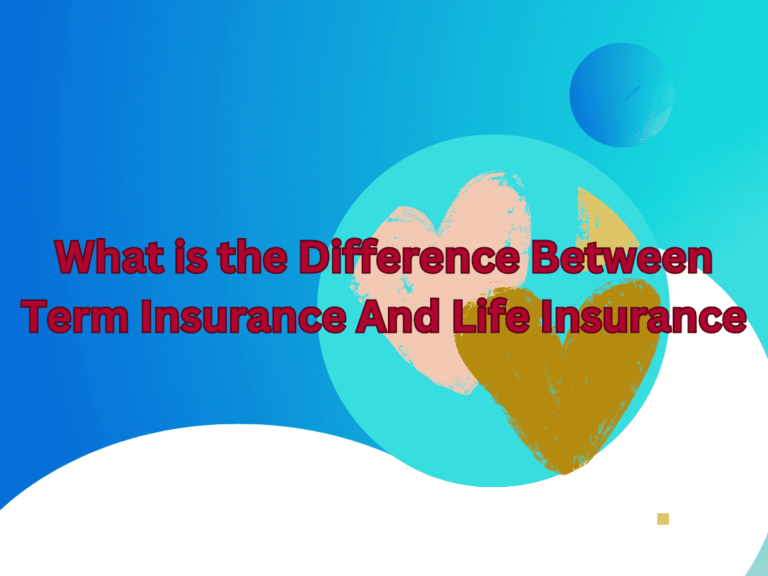A Comprehensive Guide to Understanding Insurance. Every individual confronts potential risks, uncertainties, and unpredictable occurrences daily. Hence, the desire for a safeguard protecting us from such unfavorable circumstances forms the crux of insurance. Insurance engulfs these uncertainties, providing a financial shield against potential losses or damages.
The Basic Definition and Meaning of Insurance
Insurance, in a nutshell, can be defined as a legal agreement between two parties, i.e., the insurance company (insurer) and the individual (insured). A literal definition of insurance would be a guarantee against unanticipated and regrettable losses. This implies that you are eligible for compensation if an unusual incident occurs throughout your regular course of life and you end up losing money as a result.
For instance, your motorcycle can sustain damage if you get into an accident while driving to work. In this instance, your insurance can cover the cost of the repairs. The insurer will not, however, pay for typical wear and tear, such as a broken headlamp. According to legal definitions, insurance is a contract in which the insurer promises to reimburse the insured for losses resulting from unanticipated events. A premium is another consideration included in the contract. Sum assured, also known as sum insured, refers to the maximum benefit amount that is accessible.
It works on the principle of risk sharing, where the insurer assumes the risk in return for a premium. While it doesn’t prevent unfortunate incidents, it’s designed to provide financial sustenance in such times.
Different Types of Insurance Policies
1. Life insurance: It offers financial compensation on the insured individual’s death or after a specific period. The purpose of purchasing life insurance is to guarantee your loved ones’ financial stability in the event of your untimely death. If you are the only provider for your family, you would want them to continue living the same quality of life in the unfortunate event that you pass away. In the event of your demise, the nominee receives the assured money.
2. Health Insurance: It covers the medical expenses incurred due to illnesses, accidents, or injuries. There are several distinctions, even though health insurance is typically treated like a regular insurance policy. Health insurance covers the costs of expensive medical procedures. There are two kinds of health insurance coverage available to you. One of the health insurance is Mediclaim Insurance, which covers the cost of your medical bills. Another is critical health insurance, which provides one-time payouts for severe and potentially fatal medical problems.

3. Auto insurance: Most states require this and it protects against bodily harm or vehicle damage in the event of an accident.
4. Home Insurance: It covers homeowners against damages to their property or personal assets within it.
5. Disability Insurance: This insurance offers income protection if the insured is unable to work due to a disability.
6. Liability Insurance: This protects the insured when they are legally liable for damage to others.
Enhancing Financial Security: Benefits of Insurance
Future Uncertainties: One never knows what the future holds. With insurance, you have a financial cushion ready if things go south. Regardless of the adversity, an insurance policy ensures stability during such challenging situations.
Legal Requirements: Certain insurances, like auto and business insurance, are often required by law to protect individuals from potential losses.
Promotes Savings: Insurance policies are long-term contracts where the insured pays premiums regularly, encouraging them to save money.
Risk Transfer: By taking out an insurance policy, the risk is transferred from the insured to the insurer. The insurer, with a large number of policyholders, can manage the risk effectively and afford the compensation when needed.
Economic Progress: Insurance serves as a critical pillar supporting the economy’s stability. Insurance companies invest in the premiums paid by the policyholders, propelling economic growth.
Important Features of Insurance
The following are the main characteristics of an insurance plan that you ought to think about:
- One tool for transferring risk is insurance.
- Because multiple individuals who are exposed to the same risk pool their resources to cover the loss, insurance is a community solution.
- Unlike other corporate contracts, this one is founded on the “utmost good faith” basis.
- Insurance coverage does not affect the likelihood of loss or reduce the severity of loss.
- It is your responsibility as a party to the insurance contract to make every effort to prevent, lessen, and minimize losses.
- Only unforeseen hazards can be insured against.
- Insurance does not cover business, financial (betting), or speculative risks.
FAQs about Insurance: Meaning, Types, and Benefits
Is insurance a legal contract?
Yes, insurance is a legal contract known as an insurance policy between the insurance company and the insured.
What is the purpose of an insurance policy?
The primary purpose of an insurance policy is to provide a financial safety net against unforeseen losses or damage.
Does everyone need insurance?
While the necessity of insurance can vary, everyone can benefit from certain types of insurance, such as health and auto insurance.
Are premiums for insurance policies tax-deductible?
In certain cases, insurance premiums, particularly health and life insurance, may be tax-deductible. It’s advised to consult a tax professional for accurate information.
Can I have multiple insurance policies?
Yes, you can have multiple types of insurance policies or even multiple policies of the same type.
Conclusively, insurance emerges as a prudent investment, offering peace of mind and security against the unexpected. It is an essential financial tool that provides stability and fortifies our financial future also.







